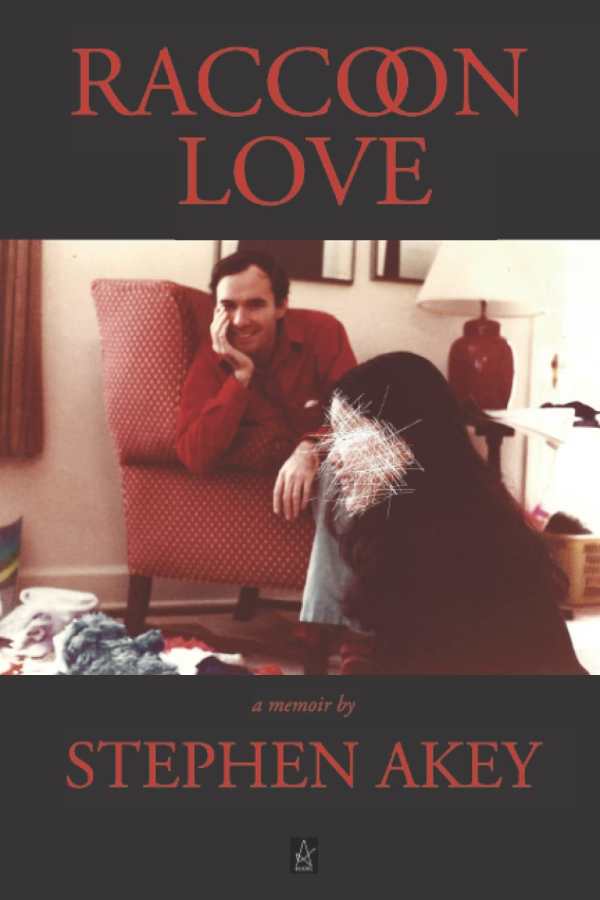Raccoon Love
The memoir Raccoon Love tells the compelling story of how a deep and nourishing love began—and of how it ended.
Rich and steeped in culture, Stephen Akey’s memoir Raccoon Love is about love, marriage, and divorce.
Set in Brooklyn from the 1980s through the first few years of the twenty-first century, this is the story of two people who achieved deep intimacy. It’s told from one of their wounded perspectives: Akey celebrates the inception of his long love affair and marriage to Lucy, an artist and a feminist, even as he mourns the relationship’s ultimate collapse. In fact, the book’s first sentence warns “It all ends badly.”
Much of the action takes place in the couple’s home, which Lucy embellished with her artwork, or in cinemas, museums, and music venues. Still, these settings take a backseat to interpersonal relations. A cultural critic and former librarian, Akey narrates all in an ironic and elegiac manner. His earthy language is often interrupted by intellectual observations, though academic terms are also often ridiculed.
Relevant quotations from, and references to, the literature and music of romantic love are integrated into the narrative with frequency and grace. These external references are used to open philosophical discussions and set relationship goals, but also to flesh out the couple. Lucy comes across as an ultra-competent, brilliant creative—a description that’s enhanced when Akey places the couple in familiar stories: “I was Orlando to her Rosalind, Benedick to her Beatrice, Ralph Kramden to her Alice.” Such external references provide depth and perspective, connecting Akey’s personal story to wider cultural conflicts about gender roles and consumer culture.
The book’s strength is its use of language and cultural references to depict emotions and experiences in a literal way; its use of imagery and figurative language is less compelling. “Raccoon love,” for example, is meant to serve as a metaphor for the sort of love shared by Akey and Lucy; it is not sufficiently developed.
Although the story’s ending in divorce is always in sight, significant suspense is achieved through the mystery of how a marriage that began with so much intentional goodwill could decay. Rather than falling into a predictable blame-game, Akey takes care to balance his criticisms of Lucy’s flaws with ample discussions of his own, sometimes tipping over the line into too much self-deprecation. Still, his personal and domestic details are placed within the wider cultural context offered by New York City’s arts scene and his considerable knowledge of literature and music. As the marriage falls apart, the reasons for why “It ends badly” emerge, along with potential alternative endings.
The memoir Raccoon Love tells the compelling story of how a deep and nourishing love began—and of how it ended.
Reviewed by
Michele Sharpe
Disclosure: This article is not an endorsement, but a review. The publisher of this book provided free copies of the book and paid a small fee to have their book reviewed by a professional reviewer. Foreword Reviews and Clarion Reviews make no guarantee that the publisher will receive a positive review. Foreword Magazine, Inc. is disclosing this in accordance with the Federal Trade Commission’s 16 CFR, Part 255.

